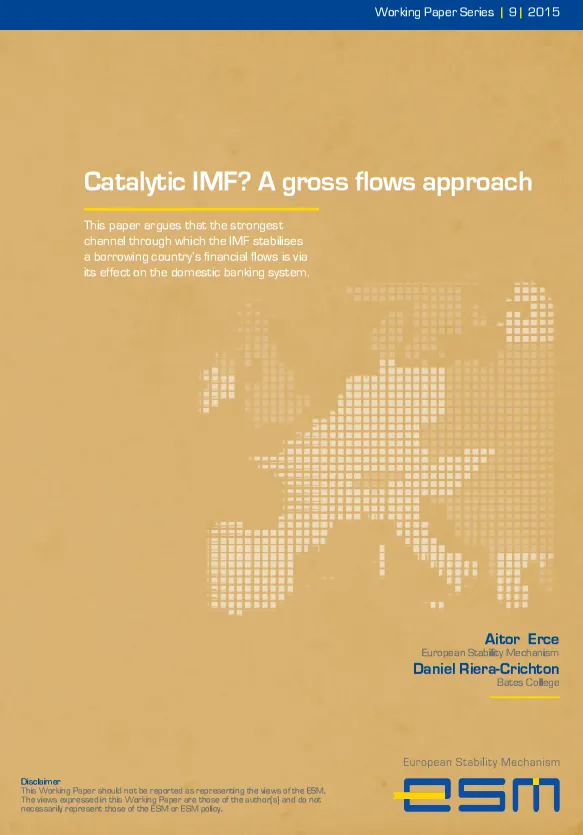Catalytic IMF? A Gross Flows Approach

Download PDF: Working Paper 9
This paper argues that the strongest channel through which the IMF stabilises a borrowing country’s financial flows is via its effect on the domestic banking system.
Author: Aitor Erce | Senior Researcher at the European Stability Mechanism
with Daniel Riera-Crichton | Bates College
Abstract:
The financial assistance the International Monetary Fund provides is expected to catalyze private capital flows. Such a catalytic effect has, however, proven empirically elusive. This paper deviates from the standard approach based on the net capital inflow to study instead the Fund’s catalytic role in the context of gross capital flows. Using fixed-effects regressions, instrumental variables and local projection methods, we document dynamics that are absent from existing models on the catalytic effect of IMF loans. Our results show significant differences in how resident and foreign investors react to IMF programs. While IMF lending does not catalyze foreign capital, it does affect the behaviour of resident investors, who are both less likely to place their savings abroad and more likely to repatriate their foreign assets. As domestic banks’ flows drive this effect, we conclude that IMF catalysis is “a banking story”. In comparing the effects across crises, we find that the effect of the IMF on resident investors is strongest during sovereign defaults, and that it exerts the least effect on foreign investors during banking crises. Across program types, only loans with longer maturities seem to generate catalytic effects.
Disclaimer: This Working Paper should not be reported as representing the views of the ESM. The views expressed in this Working Paper are those of the author(s) and do not necessarily represent those of the ESM or ESM policy. No responsibility or liability is accepted by the ESM in relation to the accuracy or completeness of the information, including any data sets, presented in this Working Paper.
JEL codes: F32, F33, F36, G01, G15